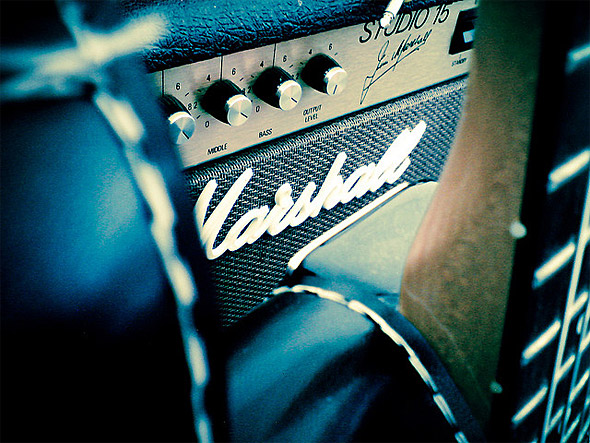Buying a new instrument is always going to be a significant investment. No matter how much or little you spend, it is still really important to make the right choice. Your new instrument will be something that should last you a long time and overall will be something that actually makes you want to play it. There’s no point buying a guitar because you like the shape or the colour, only to get it home or start gigging with it and realise that it doesn’t suit you or just sounds awful. All that’s going to happen is that it will get put on a stand and collect dust. (I have been guilty of this myself before!)
Regardless of whether you are already a seasoned player or a total beginner, some of the best advice I have been given myself is to decide on your budget, stick to it, and go out and play as many instruments as you can. Any good music shop should let you try out their gear and go away prior to making a decision so don’t feel like you have to make your choice there and then. In the past, I’ve spoken to other musicians, read reviews in magazines and checked out internet forums before going to a shop to get an idea of what to look out for (and maybe what to avoid!)
Basically, try and get as much information as you can to help make your purchase but remember that the decision on what to buy is ultimately yours alone.
Here are some general tips (some more obvious than others) which are useful to remember when buying an instrument:
DO
• Check that the instrument gets checked over/set up before it leaves the shop. You might find you’ll be heading back pretty soon otherwise.
• Check that spare parts are readily available for the brand of instrument you choose.
• Ask the shop if they will offer a free check-over after 6 months and if so make sure they include this on the receipt.
• Make sure that the shop has either a repairer on-site or can recommend one in the event of something going wrong.
• Get the manufacturers or/distributors guarantee card stamped at the point of purchase. If there isn’t one, ask that this can be detailed on your receipt.
• Make sure that the full details of the instrument, including its serial number, are on the receipt.
• Insure the instrument. There are companies that specialise in instrument insurance including and , to name only two.
• Check your consumer rights when buying unseen gear online. Make sure you are familiar with distance selling regulations and what happens if you need to return the instrument.
DON’T
• Feel pressured into making a purchase. A good shop will make you feel at ease and shouldn’t rush you.
• Be swayed in to buying an instrument solely because it’s an artist’s signature model. Just because it’s built to their requirements doesn’t mean it’s built to yours!
• Be frightened to ask questions. The people in the music shops I deal with, both as a customer and as part of my job, LOVE talking about music and the instruments they play. This way you’ll be sure to get the advice you need.
• Worry if you’re not as good a player as the next person in the shop. You can be sure that the staff, like doctors, will have seen and heard it all before so just go for it and have some fun!
• Forget to ask if the instrument comes with any extras such as leads, bags, hardcases etc. If not, make sure that you budget for something suitable to transport your instrument in. With drumkits, these can be expensive but are worth the investment and will invariably be cheaper and less stressful in the long run than having to repair damaged shells!
• Settle for something unless you are completely happy with it. Some well-known musicians have played the same instrument for years and with the right choice you’ll be playing yours for years to come too!
Another good resource, particularly for beginners and those getting lessons, is the , who have published A Guide To Buying Quality Musical Instruments. You can download a copy of this for free from their website at
Thinking of buying an instrument but want to spread the cost?
If you are aged between18-25, or someone older than this buying for someone under the age of 18, why not have a look at the Take it Away scheme from Arts Council England. It offers interest free finance over 9 months for the purchase of musical instruments between £100 and £2000. 18 month loans are also available for the purchase of instruments between £800 and £5000. You can find the nearest store where you can apply for the finance .
Alex Tucker is Assistant Office at the Take it Away scheme at Arts Council England. The views expressed here are personal and may not correspond to the views of Arts Council England.
take it away, music instrument shops, musical instruments, arts council, music instrument stores







